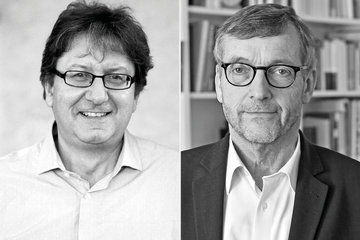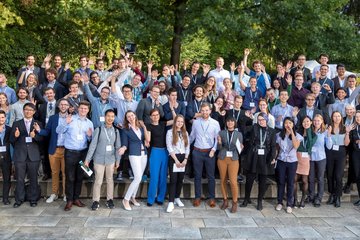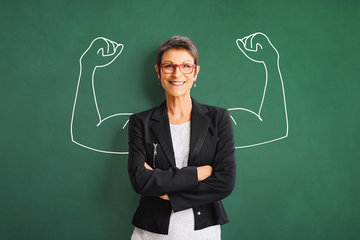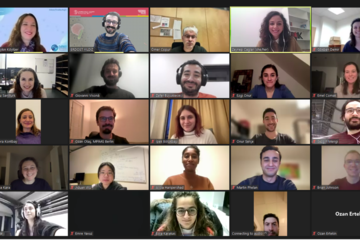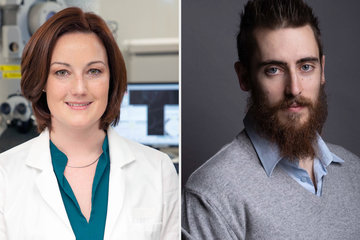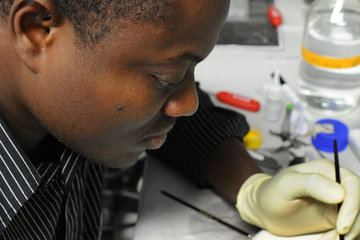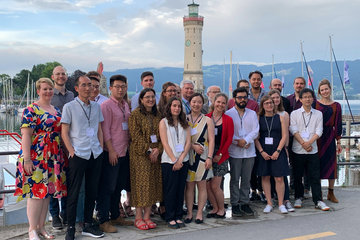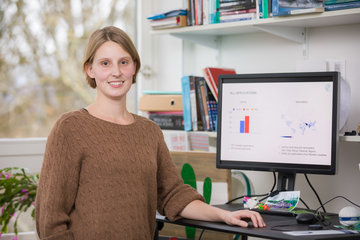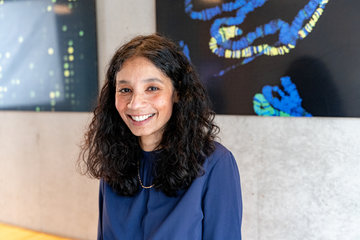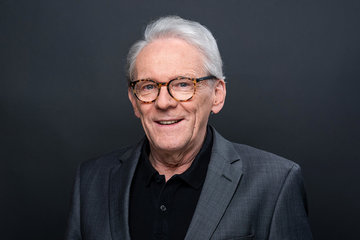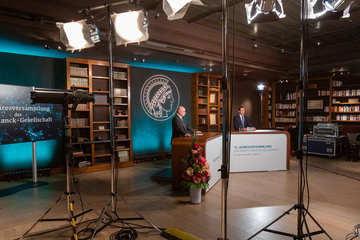Living diversity - but how?
How do you successfully develop a long-term strategy for a diverse and inclusive culture? The MPI for Psycholinguistics has set up a local working group to tackle this challenge
There are currently 14 local diversity groups within the Max Planck Society. One of them is the Diversity and Inclusion working group at the MPI for Psycholinguistics in Nijmegen, Holland. Initiated by Director Caroline Rowland, it began its work in January 2021. Since then, the group, consisting of 22 participants from various areas of the Institute, has been driving comprehensive cultural change – from the inside out.
Whether inclusive language on the website and publications, diversity trainings for employees or internships for people with a minority background: some of the measures from the long-term strategy that the working group developed within a year are already being implemented at the Institute. Currently, the Institute is advertising for a Diversity & Inclusion Officer to further advance the implementation of the strategy – another measure from the strategy paper.
The cooperation in the working group has already achieved a great deal – not least among the participants, who agree that they have learned a lot: about their own perspectives and those of others. Five of the members share why they are involved in the working group and what they stand for. A snapshot of the working group's views – as diverse as they are inspiring.

Caroline Rowland, Director
Everyone should have the chance to reach their full potential. But the reality is that there are barriers in society, and in science, which mean that some people can’t. One of my roles as a Max Planck Director is to remove as many of those barriers as possible, and this is why I, together with colleagues Karin and Anique, took the opportunity to initiate a D&I strategy here at the Institute. But importantly our role isn’t to lead, it’s to facilitate so that the ideas of our working group can be heard, supported and implemented. And it’s the diversity of voices in our working group, and in the Institute as a whole, that makes me really optimistic that we might actually reach our goal; to have a much more diverse Institute in ten years’ time, where everyone feels safe, secure and valued in their work. Given the supportive way that everyone has responded to the initiative, I think we’ll make it!

Maggie Wong, Deputy Equality Officer
One of the topics of our D&I working group is developing and implementing measures that make our Institute more diverse and inclusive for people of all genders. Gender equality is part of diversity and there’s therefore a natural interaction between the two. Our Institute has its specific gender equality plan, which is complementary to our diversity and inclusion strategy paper that also includes a specific part about gender equality. As a gender equality officer – in my first year – I focus on improving the hiring process of new members of academic and non-academic staff. We’d like to implement, for example, a checklist to make sure that gender equality is considered from day one of the hiring process.

Julia von der Fuhr, Communications Officer
The communication strategy is an essential part of our D&I strategy. We’ve started our activities by raising internal awareness within the Institute: we intend to use inclusive language, try to facilitate dialogue, and we inform people with our newsletter what we're up to. We also did a special newsletter on diversity day with lots of book suggestions, events and training exercises. We developed a logo, and we’re evaluating if we reach the goals we set. By making sure that everyone knows what we're doing and wants to get involved as well, the awareness within our Institute grows and this will translate to the outside as well.

Anique Heukens, HR Advisor
For me, it was extremely valuable that as a first step we did not approach this as an "HR only" topic, but that we gave everyone at the Institute the opportunity to get involved and to join the working group. Thus, we could approach diversity and inclusion from as many perspectives as possible. Working together with such a diverse, big group of people, really broadened my mind. I believe a real culture change only works if it comes from inside – doing it all together! We're currently busy implementing the first measures of our D&I strategy: we have added to all our job adverts a note saying that we encourage people from underrepresented groups to apply, we'll be setting up a "buddy" system, and starting internships for minority groups in the near future.

Ryan Law, Research project coordinator
A key driver for my career is to help others realize their ambitions and their aspirations in science. I grew up in Malaysian Borneo. My grandparents weren't very privileged. I had the opportunity to pursue a career in science. I feel like I've always been lucky to be able to get into academia. Yet, I believe that you shouldn't have to be lucky to be able to do the things that drive and inspire you. An often-overlooked aspect in building capacity in the workplace is the sense of belonging. This requires everyone, including researchers like myself, to work to build an environment in which everyone feels belonging. I joined the D&I working group to bring my personal perspective from a multicultural background. By making my voice heard I hope that I can contribute to changing the culture of our Institute. For me personally, being able to bring my perspective, and to feel like I can do something about it, has already shaped my outlook on academia.
Text and interviews: Petra Maaß





